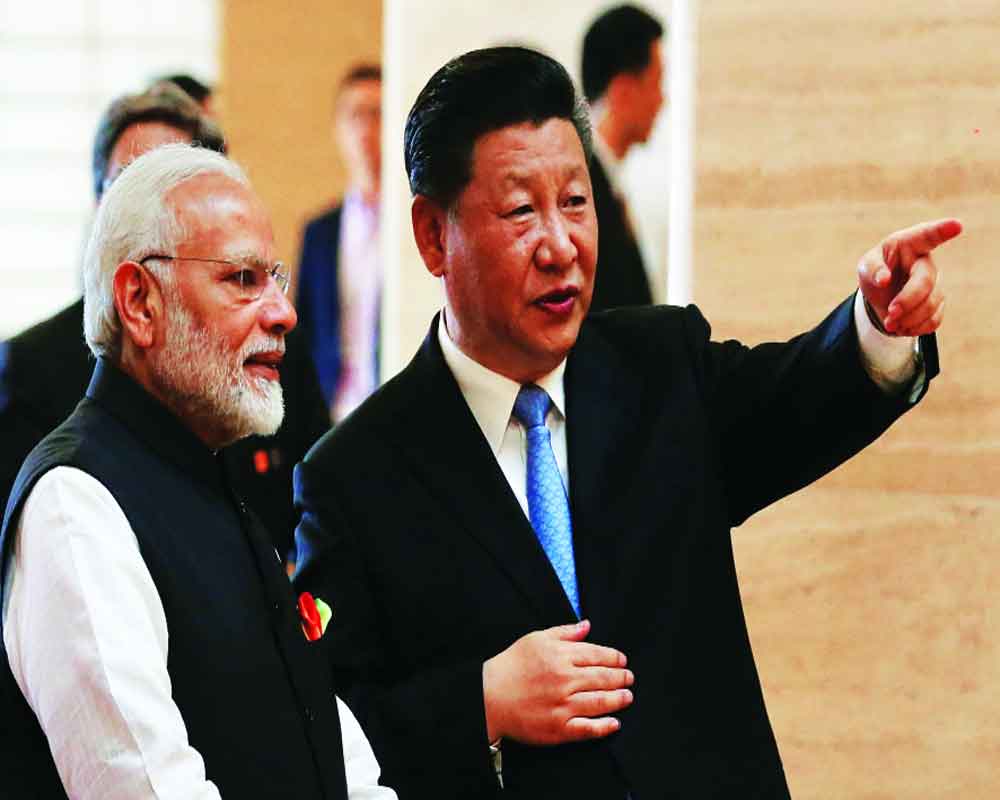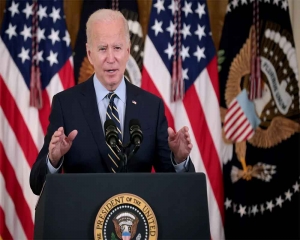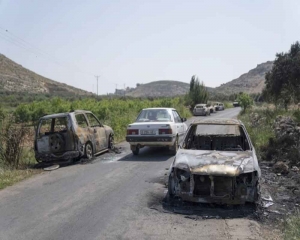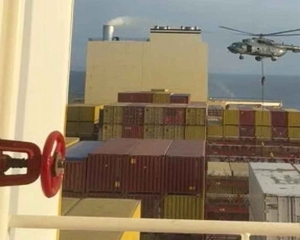It is doubtful if a Xi-Mo encounter (if it takes place at all) can solve the vexed border dispute between India and China. First and foremost condition is to develop basic trust
Will Chinese President Xi Jinping make it to the southern beach resort of Mahabalipuram? And if the informal summit with Prime Minister Narendra Modi does get confirmed, can the two leaders pull off a coup and come to an agreement to solve the vexed border dispute? Today, one is not even sure if the meeting can take place. One obvious reason is that the next round of border talks between the Special Representatives (SR) of both nations was postponed recently. The Indian and Chinese SRs were to meet this month in New Delhi for the 22nd round to prepare for the Xi-Mo (Xi Jinping-Modi) summit.
It was the Chinese Foreign Ministry’s spokesperson who announced that the talks between SRs will not take place now: “Due to India’s schedule, this visit has been temporarily postponed. The two sides will continue to maintain communication on this issue,” read a Chinese statement. There is certainly more than just a question of “schedule.” India has been deeply shocked by China’s stand at the UN Security Council. After the abrogation of Article 370 of the Indian Constitution, Beijing blatantly supported Pakistan. During a press conference in New York, Zhang Jun, China’s Permanent Representative to the UN, said that India had changed the status quo in Kashmir, causing tensions in the region. He argued that India had challenged China’s sovereign interests: “Such practice by India …will not change China’s exercise of sovereignty and effective administrative jurisdiction over the relevant territory.”
One wishes India would now start talking about the human rights in Tibet, the fate of the Uyghurs in Xinjiang or the aspirations of the Hong Kong population — the cancellation of the SR talks should certainly be seen in this perspective. The Hindustan Times commented: “It is rare — in fact unheard of — for China to officially confirm the delay of the top-level bilateral meeting, which the Government, or the Foreign Ministry hadn’t even announced.”
A factor which has certainly played a role in the postponement is the continuous pro-Pakistan bias showed by Wang Yi, the Chinese SR and Foreign Minister. Last weekend, he visited Islamabad and met the Pakistani President, Prime Minister Imran Khan and Foreign Minister Shah Mahmood Qureshi (officially, he had gone to attend the 3rd China-Afghanistan-Pakistan Foreign Ministers’ Dialogue). Perhaps more telling for India, Wang had detailed talks with the Chief of Army Staff, Gen Qamar Javed Bajwa, and both pledged to deepen cooperation in various fields between the two nations.
According to Xinhua, Wang asserted that China “will firmly support Pakistan in safeguarding sovereignty, dignity and territorial integrity and the Government to achieve national stability, development and prosperity. China will also firmly support Pakistan in playing a more constructive role in regional and international affairs.”
Was it a coincidence that Pakistan decided to release Jaish-e-Mohammad chief Maulana Masood Azhar from protective custody? According to Intelligence reports quoted in the Indian media, Azhar, though designated a terrorist by the United Nations in May 2019, has been let out to plan terrorist operations against our country.
Another issue usually not mentioned is the fact that the SR talks have been downgraded. For years, the National Security Advisor used to meet Yang Jiechi, who was then State Councillor (like Wang Yi today). Yang was later promoted as a member of the Politburo, while his Indian counterpart, Ajit Doval, was elevated to the rank of a Cabinet Minister. The logical and normal way would have been that Doval continued to meet Yang. Instead, Wang, far junior, was designated by China as the new SR. This amounts to a de facto downgrading of the talks.
Just to give an example, last month, amid the Hong Kong unrest, important China-US talks were held in New York. Mike Pompeo, the US Secretary of State, met Yang Jiechi. Any serious talks are usually conducted by Yang; if China was serious about solving the border issue, Yang should have been named as SR by Beijing.
Another sign of black clouds gathering over bilateral relations was when the Northern Army Commander Lt Gen Ranbir Singh postponed his scheduled visit to China. Officially, it was meant to monitor the situation in Kashmir but there is no doubt that the Chinese side was not keen on the visit and remained vague. In these circumstances, is the time propitious for a serious advance on the vexed border issue? The answer is no.
Officials in India are often confused by the length of India’s border with China. According to the MEA: “The entire Sino-Indian border is 4,056 km long and traverses one Indian Union Territory, Ladakh, and four States viz, Uttarakhand, Himachal Pradesh, Sikkim and Arunachal Pradesh”. While the MHA says, “India shares 3,488 km of border with China that runs along Jammu & Kashmir, Himachal Pradesh, Uttarakhand, Sikkim and Arunachal Pradesh…the border is not fully demarcated and the process of clarifying and confirming the Line of Actual Control is in progress.” They have forgotten about the Shaksgam Valley “donated” by Pakistan to China in 1963. Though currently in China’s possession, it is very much part of Indian territory. This should be the first point on the agenda of the SRs when they meet.
On August 29, Union Defence Minister Rajnath Singh reiterated India’s position: “Kashmir has always been India’s territory and will remain so.” He added that Pakistan, which illegally occupied Pakistan-occupied Kashmir (PoK) and Gilgit-Baltistan, has no locus standi in Kashmir. The implication is that the “donation” of Shaksgam Valley is invalid and needs to be discussed. In July 1961, three conversations took place between Zhang Wenji, Director of the Foreign Ministry’s Asian Affairs Department and G Parthasarathy, the Indian Charge d’affaires in Beijing.
Zhang argued that based on China’s experience of Sino-Burmese and Sino-Nepalese negotiations, though the two sides disagree on the facts, two methods were worked out to resolve differences: (1) Each presents a factual basis and objectively compares them, looking to see whose information is relatively more logical …and more beneficial to the two countries’ friendship; (2) each can keep to its own position and consider, from a political standpoint, what kind of resolution would be more beneficial.
This could be a way to proceed but basic trust needs to be built first. It is not present today. It is, therefore, doubtful if a XiMo encounter can bring any “early harvest” as predicted by the Chinese side. In these circumstances, the best one can expect is some “softening” of the Line of Actual Control.
(The writer is an expert on India-China relations)


























